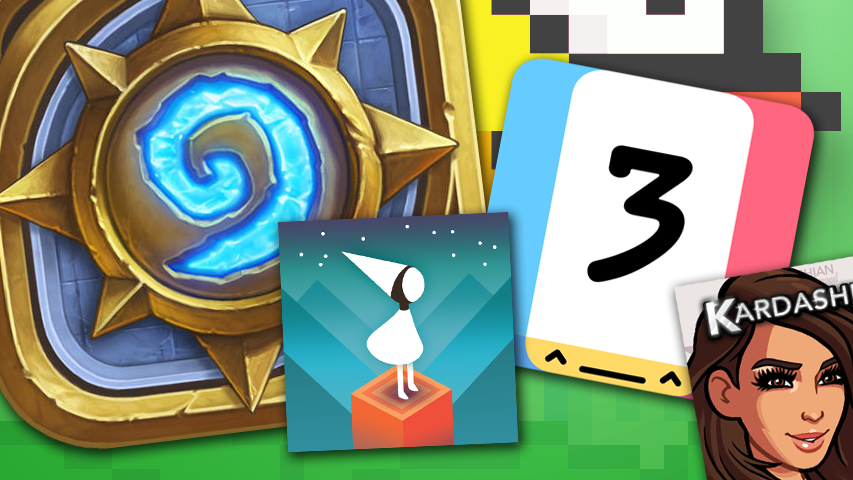5 main games of 2014
This year we decided not to make a selection of the best games. There were many excellent projects, it was an ignoble task to choose among them. But at the same time, in the past year there have been enough games that can be safely called, if not pivotal, then very important for the industry, which literally changed it before our eyes. Let's talk about them.
Flappy Bird
One of the key projects of 2014, which was released in early 2013
It is still not clear what caused the success of the project. There is an opinion that it's all about bots, there is a version that the author of the game found a vulnerability in the App Store, which he took advantage of, and there is also one according to which the rate button was next to the retry button.
However, our Western colleagues from Mashable, having raised the database of 68 thousand reviews extracted from iTunes, did not find any signs of cheating or manipulation at the initial stage. If you track the activity of players in Flappy Bird via Twitter, you can see how, since November 2013, interest in the game has been growing rapidly and naturally. At the same time, the first photos of American students massively playing Nguyen's project belong to this time.
Anyway, today it doesn't matter how exactly the project blew up the tops, for the industry, the January success of Flappy Bird is a definite milestone. For many, the game has become a symbol of what a project by a previously unknown developer can achieve.
In addition, Flappy Bird has made it clear to the industry that complex games can be popular with a wide audience.
Threes!
Today, if you start a conversation with one or another Western developer about 2048, he or she will most likely make a sour face and say that, de, let's talk about Threes!, and not about her clone.
But here's the catch, the mechanics of Threes would become! would it have been so popular if the guys from Veewo Games hadn't simplified it first by releasing 1024, which was then copied by Gabriele Cirulli?
Anyway, Threes! as a phenomenon (in the sense, with all derivatives), it turned out to be another virus this year, which forced many developers to work in a similar direction (at least 600 clones of 2048 can be found in the App Store alone).
Monument Valley
The main “indie” of the year was made by a company that has about 200 employees and specializes in custom application and interface development, made without much hope of success, as, let's say, an experiment (such an approach, however, did not prevent ustwo from approaching the matter as seriously as possible and starting to more or less aggressively promote the game in three months before the release).
For us, in turn, the “bell” rang: successful mobile companies, for whom games (at least similar games) are a non—core business, may well successfully experiment, pursuing not commercial, but creative goals. It is quite possible that such things will happen more often over time.
Kim Kardashian: Hollywood
The fact that working with major brands can increase the project's performance was known even before the release of Kim Kardashian: Hollywood, but Glu, having relaunched, in fact, last year's Stardom: Hollywood starring Kim, demonstrated what happens in the case of a synergy of high-profile IP and proven mechanics aimed at that audience, which is also a potential IP audience.
Previously, this was done at such a high level only by Kabam, Warner Bros. and Disney, which are not very open. Glu, being, in turn, a public company, could not help but talk about the successes, which, in the end, only “added fuel to the fire.” For this reason, we do not exclude that next year we will have a huge number of projects “based on” various shows.
Hearthstone
The appearance of Hearthstone on mobile platforms, firstly, once again highlighted the relevance of the multiplatform trend. In short, it is characterized today not by the presence of games on all mobile platforms (this is something that goes without saying), but by the widespread practice of creating games with calculations on PC and mobile at once (where PC is not social, but electronic retail, like Steam).
Secondly, the game has demonstrated the high potential of free-to-play 2.0 on mobile platforms. The latter, we recall, marks the abandonment of template game mechanics, hard pay-to-win and an increase in the role of user skills.





